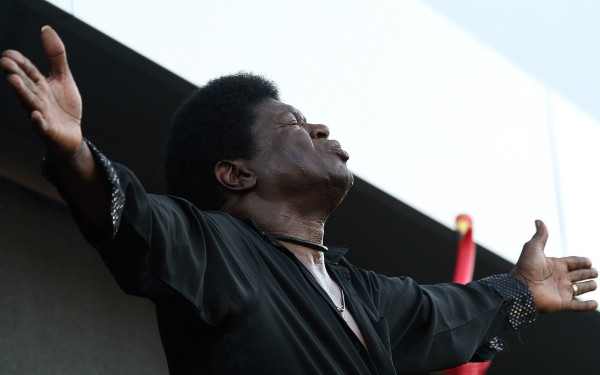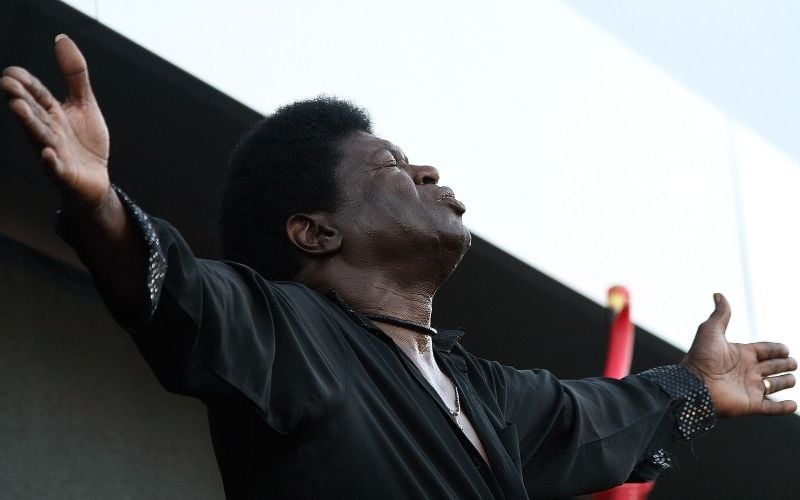
James Brown was called the hardest working man in show business, but today, Charles Bradley is making his own case for that title, and he’s following Brown’s footsteps in more ways than one. They share looks, fashion sensibilities and most importantly, vocal prowess. But after a long career as an impersonator, Bradley is now his own act, with his own band and his own name topping the billings of festivals and concerts around the world. At 67 years old, he has quite a story to tell, and he shares the latest chapter in the form of his third full-length studio album, “Changes.”
Before listening to the album, it’s worth reflecting on the two moments in 1962 that set Bradley on the long and arduous path that he triumphantly walks today. First, he saw James Brown at the Apollo, and there he found an idol that would last a lifetime. Soon after, at just 14 years old, he left his poverty stricken home for a life on the streets, sleeping in New York City subway cars and finding work as a chef when he could. For the next few decades, he drifted between struggle and tragedy – facing poverty, health issues and the murder of his brother – before finding work as a James Brown impersonator under the alias Black Velvet. It was these nightclub performances that led to his discovery by Daptone Records.
“Changes,” Bradley’s third project with Daptone, is an R&B album in the truest sense of the term. In the past few decades, the genre’s abbreviation has come to evoke smooth, falsetto vocals and lush, evocative chords laid over sparse beats. But Bradley is in the business of the original R&B – rhythm and blues – that finds its strengths in rock ‘n’ roll drums, plentiful horn hits and vocals divined from sweat and tears rather than silk and satin.
On “Changes,” the marriage between Bradley’s powerful voice and the stellar backing of his bands, The Extraordinaires and the Menahan Street Band, seems more settled than in his previous recordings. There’s a stronger agreement between the two, and the result is a natural synergy that might convince you they’ve been playing together since Bradley’s Black Velvet days. Together, they run the gamut from gospel (“God Bless America”) to classic R&B (“You Think I Don’t Know”) to doowop (“Things We Do For Love”) to early seventies funk (“Ain’t Gonna Give it Up”).
But while he hops between subgenres, the overarching and undeniable theme of the album is soul. “Changes,” and Bradley’s popularity in general, is very much a continuation of classic American soul music’s recent revival. It finds a place among the work of a new generation of artists, including Grammy-nominated acts like Leon Bridges and Alabama Shakes. The genre’s revival is defined by both a deep respect for authenticity and a crate digger’s sense for nostalgia, and for those who didn’t live through the genre’s genesis, attention must be paid to the details.
Take Bridges, a young performer who dresses exclusively in vintage clothing and sings like Sam Cooke. His sartorial choices are clearly designed to invite such comparisons, either to Cooke or to Otis Redding or to any other member of the golden era of classic R&B. It could be said that while three piece suits and preppy mustard yellow sweaters don’t make for the most comfortable performance wear, they do make quite an impression.
But by virtue of a long, often difficult life, Bradley can forego any manufactured or ritualistic grabs at nostalgia. He stands out because, simply put, he is the real deal. Aside from the obvious homages to Brown, like the “Sex Machine” era open-chested jumpsuit he wears at concerts and the distinct jabs of vocal lightning he throws in to work the crowd (“Ha! Good God.”), Bradley manages to feel anything but contrived. Rather, one gets the sense that, with a little better luck in his youth, he might have carried the torch directly from Brown or Redding and could have made the golden years last just a little bit longer. But he of all people knows by now that the world changes quickly and in the most unexpected ways, whether in the form of tragedy or improbable, hard-earned success. Some things, like good old-fashioned soul, just happen to be timeless.
Contact Benjamin Sorensen at [email protected].
